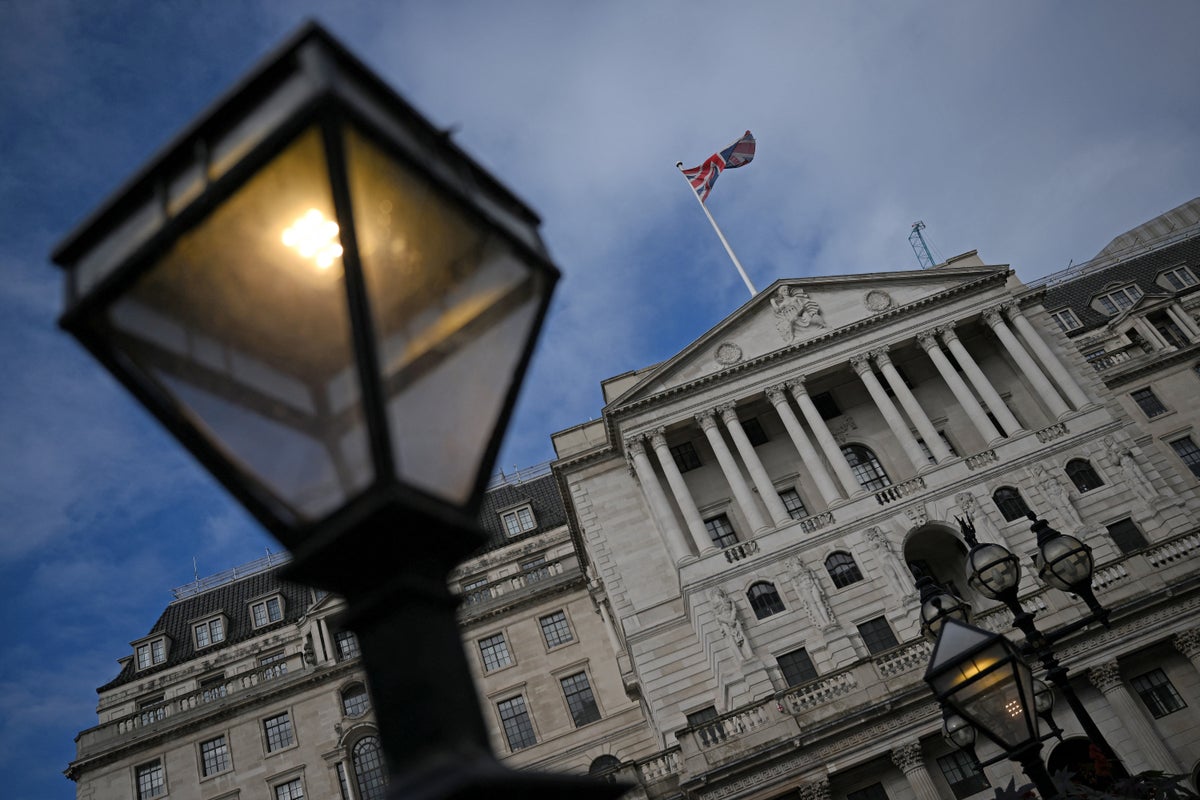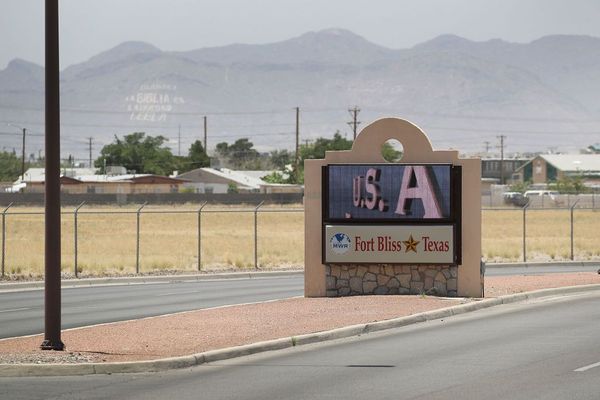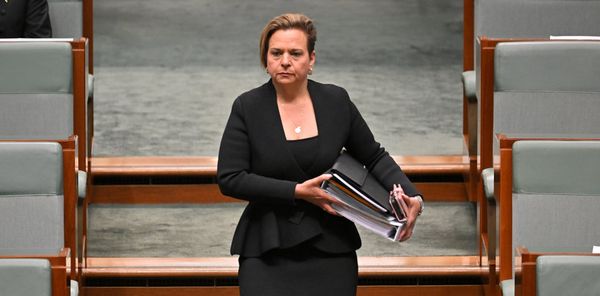
The Bank of England announced that it will further expand its emergency bond-buying scheme, as it warned that an ongoing market rout on government debt poses a risk to Britain’s financial stability.
Traders have continued to dump government bonds this week, pushing up the price of borrowing and posing a “material risk to UK financial stability”, according to the central bank.
The Bank said on Tuesday morning it would now widen the scope of its bond-buying plan operations to include purchases of index-linked gilts in a bid to prevent a “fire sale” which could threaten pension funds.
“The beginning of this week has seen a further significant repricing of UK government debt, particularly index-linked gilts,” it said. “Dysfunction in this market, and the prospect of self-reinforcing ‘fire sale’ dynamics pose a material risk to UK financial stability.”
The Pensions and Lifetime Savings Association (PLSA) said a “key concern” of pension funds was that the bond-buying scheme should not be ended too soon.
The PLSA – which represents pension schemes providing a retirement income to more than 30 million savers – suggested the emergency action should continue until at least the end of October.
The industry body said “many feel it should be extended to the next fiscal event on October 31 and possibly beyond, or if purchasing is ended, that additional measures should be put in place to manage market volatility”.
Sir John Gieve, the Bank of England’s former deputy governor for financial stability, said the Bank could be forced to continue its bond-buying programme for a “couple more weeks” beyond Friday.
“The [bond market] moves yesterday must have alarmed them,” Sir John told BBC Radio 4’s Today programme – who said the “underlying move came on the back of the announcement of huge amounts of extra borrowing” from chancellor Kwasi Kwarteng.
Sir John said the pressure was still on the chancellor to reassure the markets when he shares his fiscal plan on 31 October.
“He’s actually got to now produce a set of projections which add up. Now it’s one thing to say that, can he actually deliver that? Does the parliamentary party believe in that? All the difficult decisions have still got to be taken.”
It comes as the Institute of Fiscal Studies (IFS) warned that the government would have to make £60bn of spending cuts to balance the books by 2026-27.
If Liz Truss and her chancellor do not abandon their tax cut giveaways, they will have to make “painful” public sector cuts of 15 per cent to get debt under control, the IFS found.
The Bank was forced to launch the emergency bond-buying scheme on 28 September after market turmoil threatened pension funds. Asked if pensions were safe, deputy prime minister Therese Coffey told Sky News: “I’m absolutely confident pensions are safe.”
Ms Coffey insisted on Tuesday that the UK’s public finances were still in a “good state”. Asked about the prospect of austerity cuts ahead, the deputy PM said: “I’m just not going to get into hypotheticals.”
Shadow Treasury minister Pat McFadden said news that the Bank of England “has been forced to step in for a second day running to reassure markets shows the government’s approach is not working”.
The Bank of England announced on Monday that it will double the daily limit on its gilt-buying programme from £5bn to £10bn as it brings the scheme to an “orderly” close ahead of Friday’s cut-off.
Long-dated gilt prices tumbled, which sent yields on 30-year bonds soaring to 4.7 per cent on Monday – their highest level since the Bank of England was forced to step in last month in the wake of the mini-Budget.
The Bank said its latest efforts to expand the scheme will “act as a further backstop to restore orderly market conditions”.
Senior Tory MP Mel Stride, chair of the Treasury select committee, warned that that Mr Kwarteng may still have to go further if he is to reassure jittery markets.
Mr Stride told the BBC: “And it is possible to do that, but it may require a huge amount of political courage on his part, possibly even to row back further on the tax cuts that have come forward.”
Tory MPs have told The Independent they would oppose major public sector spending cuts, following the IFS warning of a return to austerity to address the black hole in the public finances.
Kevin Hollinrake said: “A lot of MPs would have concerns if there were spending cuts impacting on frontline services, or making constituents worse off in terms of welfare. In terms of impacting of impacting on public services, as well as on welfare, spending cuts will be tremendously difficult to get through the House.”
Ms Truss is facing mounting opposition within her own party over proposals not to increase benefits with inflation, a move that would amount to real-terms cuts for the most vulnerable.
Labour called on the chancellor to reverse course on the “kamikaze” tax-cutting mini-Budget. “It will be up to Labour to clean up the mess of the Conservatives once again,” said shadow chancellor Rachel Reeves.
It comes as the Office for National Statistics (ONS) said the unemployment rate fell to 3.5 per cent over the three months to August – the lowest since February 1974.
But the new data also showed another slight improvement in pay but it continues to lag far behind inflation. Average pay, excluding bonuses, grew by 5.4 per cent over the three months from June to August. But inflation struck 9.9 per cent in August.







